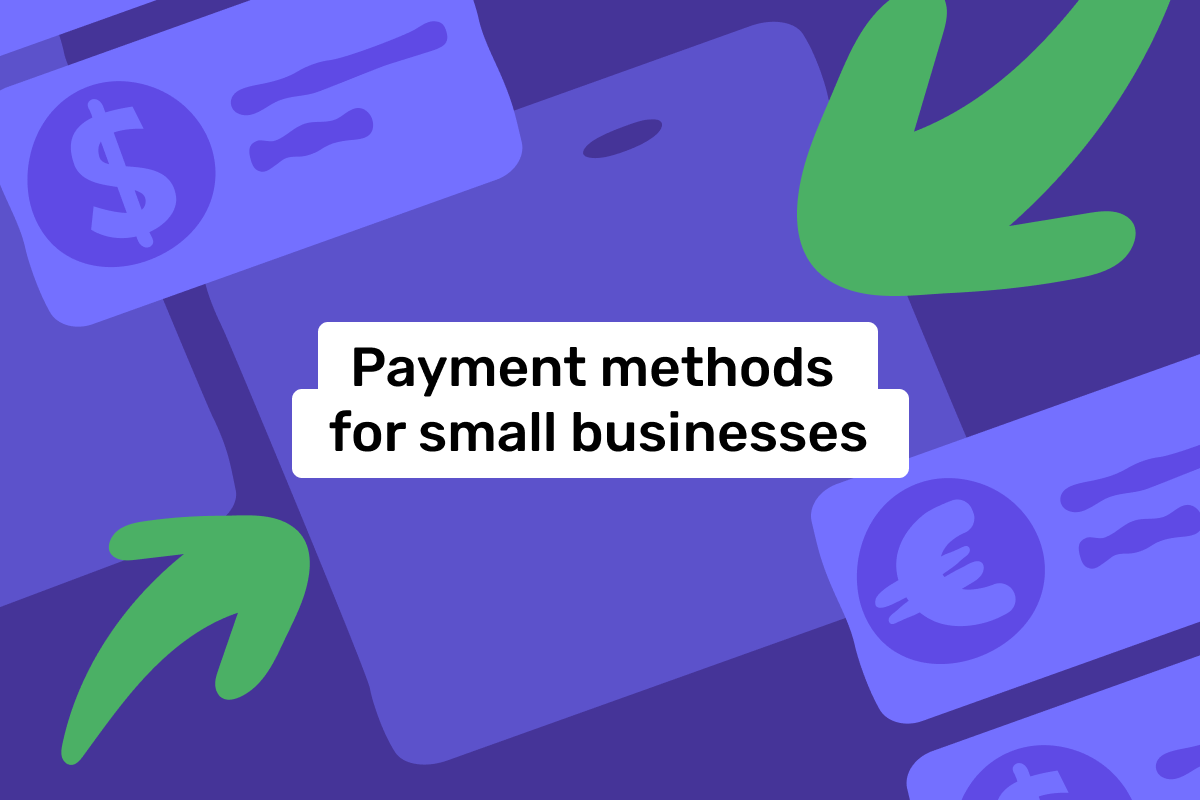The sheer number of businesses and services they provide forces customers to be more picky and critical. As a result, companies are under constant pressure – they need to ensure every part of their business operations is on par with high expectations. Payment methods are no exception.
In today’s article, Genome lists some of the best payment methods for small businesses, along with contactless payment options. Read on to find out more about small business payment options.
What are different payment methods for businesses?
Before answering this question, let’s first dissect what the term itself means. A payment method refers to any type of payment that clients use to pay for merchants’ merchandise and services.
Payment methods can be divided into two groups: traditional and alternative. The most traditional payment option is, of course, physical cash, no matter its country of origin and currency. Debit, credit, and prepaid cards, which are a part of card payment systems, are also considered traditional payment methods.
Other methods that weren’t mentioned fall under the alternative category. These are digital wallets, electronic payments, online payment systems, etc.
Some also differentiate between local and international payment methods. Local payment methods are usually used within a specific country or economic region. For instance, national currencies can be considered a local payment method. Meanwhile, international payment methods, such as debit cards, can be used in almost any country. All in all, both are necessary payment options for small business owners.
Open an account
in Genome online
Payment methods for small businesses: how to choose the right ones
Small businesses come in many shapes, as the demand for various products and services only grows over time. Also, modern technology allows them to reach many clients not only locally but internationally.
It is why, before considering different payment methods for businesses, you must first assess your company and its prospects. Let’s review some examples.
Example #1
You own one grocery store in a small town’s rural area. Your store is not part of a chain and doesn’t ship your products. As expected, your main clientele is town citizens.
Therefore, the best small business payment option for your company is cash, more specifically, a local currency. Also, you will need a payment terminal to accept debit and credit cards. You should also consider contactless payment options for customers who prefer paying via their phones using NFC.
Example #2
You have a shop that sells unique candles and candle accessories. Although you have a moderate-size store, your company’s successful social media presence allowed you to spread the word about your product. So now you also ship the candles to other countries. Thus, you need online payment methods for small businesses. Of course, credit and debit cards will probably be your first choice, but you should also research what other online payment systems for small businesses are in high demand among your clientele. For instance, PayPal is quite a popular payment option, as it works in over 200 countries and territories.
Naturally, you need to take care of your local customers as well – by allowing them to pay in cash, installing payment terminals for cards and contactless payment options, etc.
Example #3
You have a clothing store that originated in one country, but your successful business tactics allowed you to open subsidiaries in two other countries. And your company also ships clothes to other countries.
So now, not only do you need online payment methods for small businesses to accommodate international customers. You must also pay close attention to clients that visit your subsidiaries, as they use other currencies and payment methods.
As you can see, the conditions for doing business vary for each small company, and it is essential to proceed carefully when choosing payment methods for small businesses.
Types of small business payment options for your company
In this part of the article, our team will go over some of the available payment methods for small businesses.
Payment method | Description |
Cash | It, of course, is one of the most known payment methods. Although the usage of electronic payments started ousting it in recent decades, some people still prefer carrying physical currencies. |
Credit and debit cards | Bank cards have been around for some time now and are the most popular small business payment option in many countries. Because of that, having a POS terminal at your store is a must for a successful company. |
Money transfers | Some companies prefer receiving payments from customers with the help of bank transfers. It allows keeping less cash for practical reasons. Also, money transfers are convenient for B2B purchases. |
Mobile wallets | Mobile wallets such as Apple Pay and Google Pay are one of the most convenient ways of paying, as customers only need to tap their phone over the POS terminal or, if they pay online, click a couple of buttons. |
Online wallets | One of the fairly recent small business payment options is online wallets. Clients store their money virtually and pay when they need to. Find out the difference between mobile and digital wallets in this article. |
Buy now, pay later | The payment method is described by its name. Also known as BNPL, it allows customers to buy a product or service and pay for it in parts within a set period. Some clients may find this payment method handy, especially if they buy something expensive. |
How can you get different payment methods for a business?
A company needs a merchant account and a payment processor for small businesses to accept various payment methods. To access these, you need to select a bank or a financial institution that will be the most beneficial for your company. Here are the criteria you need to consider:
The industries the financial institution works with and if it is available in your country;
The availability of merchant accounts, which are absolutely a must to accept payments from customers;
Payment methods for small businesses: what payment options are available and if they correlate with your needs;
The countries and currencies the financial institution supports – ensure they are in line with your clientele’s locations and preferred currencies;
Payment page integrations. If you need online payment methods for a small business, you will also require a payment page on your website for customers to input payment data. The most common integrations are host-to-host, hosted payment pages, and mobile SDK for apps;
If you have physical stores, make sure your bank also offers point-of-sale terminals, so your clients can use cards and contactless payment options;
Additional services your business might need for its financial operations, such as money transfers, debit/credit cards, etc.;
The security instruments and tools a bank provides to protect your information and assets;
The fees for using the account and its features.
As you can see, many components play a part in selecting a financial institution and a payment processor for small businesses. And you should also remember that you require a business account as well.
A business account is your main gateway for all company-related financial operations. Also, this is where your money from a merchant account will be transferred to eventually.
If you are looking for an online business account, Genome is at your service! Our Electronic Money Institution offers business wallets for companies in Europe. The onboarding and the subsequent financial operations happen entirely online, thus, our clients don’t have to waste precious time in bank branches.
Open an account
in Genome online
Our business wallets allow companies to start multiple business accounts inside them. They all can be in different currencies: you can have up to 5 accounts in euros, British pounds, and US dollars.
Not only that, but Genome also offers SEPA money transfers with flexible templates and multiple filters. We also developed instant transfers, using which you can send funds to other Genome users in a matter of seconds.
To improve your purchase experience, you can order Genome’s Visa debit cards. You have two options: virtual cards for online and contactless payments (Apple Pay, Google Pay, and Garmin Pay-compatible) or physical ones for online, in-store, and contactless payments. Find out more about Genome on our website.
FAQ
What payment method is good for small businesses?
As we described in the article and presented in some of the examples, there are many small business payment options. And nowadays, companies simply cannot go with just one payment method – they need to consider their business structure and clients’ needs.
Thus, usually, companies will have card payments, online payment methods for small businesses, and contactless payment options. The choice of payment methods also depends on the specific country you sell products and services in. For instance, Sweden is on track to building a cashless society; thus, the use of physical money is not as likely there.
How do I set up a payment system for my small business?
To get payment methods for small businesses and set up a payment system, you need to find a financial institution that offers such services. To accept payments from customers, you require a bank that offers small business payment options that are in line with your demands and a merchant account. Its employees are likely to help you with the setup process.
Which payment method is most successful?
Debit and credit cards remain among the most commonly-used payment methods. However, many online payment methods for small businesses have arisen in recent years and are projected to become more popular among customers.
What is the best payment method for a small business?
As our team mentioned before, it is unreasonable to distinguish only one payment method for small businesses because, usually, a company needs more than one to succeed in the market. Cash is still a fairly popular option, and many people by now are used to paying with cards.






